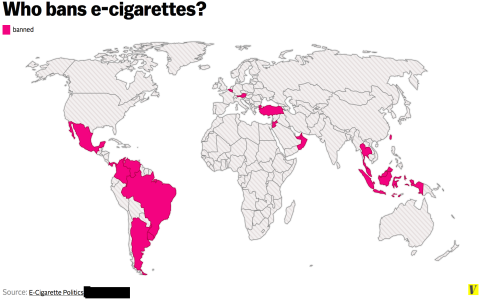The debate surrounding a ban on electronic cigarettes (e-cigarettes) involves complex considerations, balancing public health concerns with individual liberties and potential harm reduction benefits.
Arguments for Banning Electronic Cigarettes
Proponents of a ban highlight several key concerns:

- Youth Appeal and Addiction: E-cigarettes, particularly flavored varieties, are highly attractive to young people. This can lead to nicotine addiction among adolescents, potentially acting as a gateway to combustible tobacco products. The developing brains of youth are especially vulnerable to the harmful effects of nicotine.
- Health Risks: While often marketed as safer than traditional cigarettes, e-cigarettes are not harmless. They expose users to nicotine, ultrafine particles, heavy metals, and other potentially toxic substances. Long-term health effects are still not fully understood, but emerging evidence links vaping to respiratory and cardiovascular problems.
- Public Health Impact: The normalization of vaping could undermine decades of anti-smoking efforts. Increased youth uptake could reverse progress made in reducing tobacco use.
- Regulatory Challenges: The e-cigarette market is diverse and rapidly evolving, making comprehensive regulation difficult. Concerns exist regarding product safety standards, ingredient disclosure, and marketing practices.
- Secondhand Aerosol Exposure: Bystanders can be exposed to harmful substances in the aerosol emitted by e-cigarettes, although generally at lower levels than secondhand smoke from traditional cigarettes.
Arguments Against Banning Electronic Cigarettes
Opponents of a ban, or those advocating for regulation rather than prohibition, present the following arguments:
- Harm Reduction for Adult Smokers: For adult smokers who are unable or unwilling to quit nicotine, e-cigarettes can be a significantly less harmful alternative to combustible tobacco. A complete ban would remove this option.
- Individual Autonomy: Adults should have the right to make informed choices about their own bodies and health, provided they do not harm others.
- Black Market Risks: Banning e-cigarettes could lead to an unregulated black market, where product safety and quality are compromised, potentially increasing health risks for users.
- Economic Impact: The e-cigarette industry supports jobs and generates tax revenue. A ban would have negative economic consequences.
- Effectiveness of Bans: Prohibitionist approaches can be difficult to enforce and may not achieve the desired public health outcomes.
Alternative Approaches
Many public health experts and policymakers advocate for strong regulation rather than an outright ban. This could include:
- Restricting flavors that appeal to youth.
- Implementing strict age verification for sales.
- Banning marketing practices that target minors.
- Establishing product safety standards and requiring ingredient disclosure.
- Taxing e-cigarettes to discourage use, particularly among young people.
- Funding public health campaigns about the risks of vaping.
Conclusion: The question of whether to ban electronic cigarettes involves weighing the potential benefits for adult smokers seeking harm reduction against the significant risks to youth and public health. A nuanced approach, focusing on robust regulation, may offer a more effective path to minimizing harm while preserving choices for adults who use these products to transition away from combustible tobacco.










